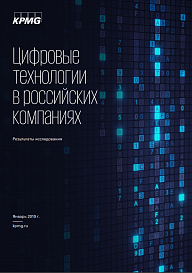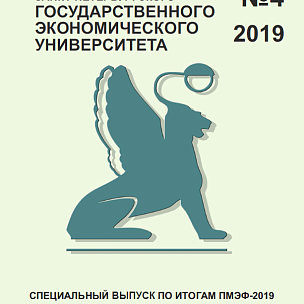The survey conducted by KPMG covered over 100 major Russian companies operating in key sectors of the Russian economy, such as finance & banking, telecommunications, metals industry, oil & gas, transportation, and retail. The respondents included top managers, superior officers responsible for digital transformation, and heads of departments with either pilot projects launched or some type of digital technology already implemented.
The results of the survey show that large Russian companies have already embarked on digital transformation. However, according to KPMG analysts, most companies don’t have an all-round digitalization program yet — only a set of short-term pilot projects to implement individual, and often fragmentary, digital solutions. The most popular technologies are big data analysis, chat bots, robotization, and machine learning. These technologies have already been implemented in over 50% of the companies covered by the survey. The share of companies using the technologies under analysis varies depending on industry sector. So, the results of the survey also indicate potential sources of growth for individual industry sectors by highlighting spheres where the use of digital technologies can be increased.
The majority of respondents expect that digitization will increase operational efficiency and reduce costs. Over one-third of Russian companies are planning to invest more than 100 million rubles in digitization in 2019. 51% of companies expect that the investment will pay off in under 2 years, another 43% expect return on investment within 2-5 years. In 36% of Russian companies, decisions on financing digitalization projects are made after individual consideration at the top management level. Another 25% of companies review such projects amongst IT projects.
The survey shows that as few as 16% of companies have introduced the position of CDO (Chief Digital Officer) or a similar position of head of digital transformation program. In another 44% of companies, the corresponding functions are distributed between existing top managers. 34% of companies have created competency centers for digital technologies. Regardless of having a dedicated competency center, companies prefer to employ industry experts on a full-time basis, other forms of employment aren’t common.
Russian companies are prevented from launching a full-scale digitalization program by immature business processes and a lack of competent professionals. According to the respondents, the greatest threats of digitalization are associated with cyber security. Despite the worries concerning a risk of unemployment, 46% of company directors in Russia and 64% worldwide believe that in the nearest 5 years digital technologies will create more jobs than they will destroy.






